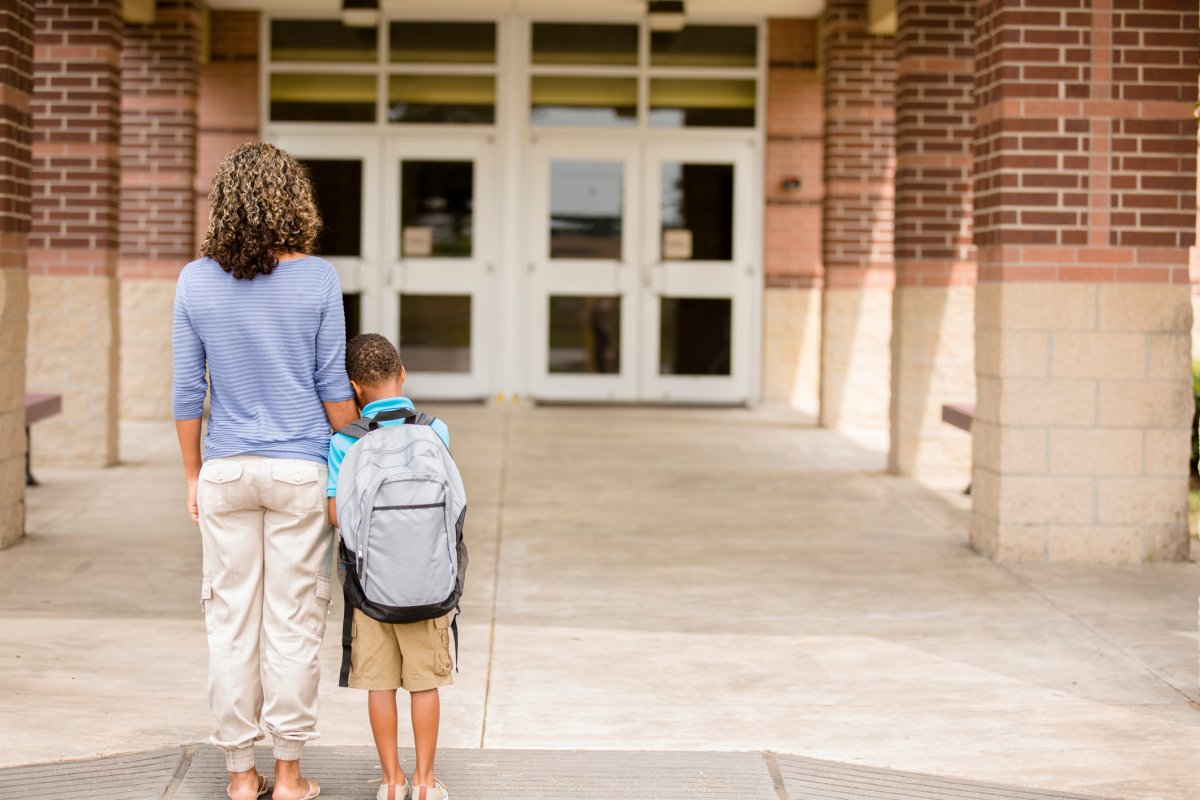Whether it’s their first day of school or first sleepover at a friend’s house, separation anxiety is quite common in children.

“It is normal for young children to be fearful of being separated from their parents,” says child psychologist Dr. Jillian Roberts, the founder of parenting resource website Family Sparks.
“However, as children get older, it is expected that a child will become more and more comfortable, for example, being left with a babysitter or being dropped off at school.”
Separation anxiety occurs when children can’t manage their anxious feelings, she adds, and this anxiety can disrupt their lives. That can result in children becoming extremely emotional if they are away from their parents, or excessively clingy.
READ MORE: Why this Calgary mom decided to stop cleaning up after her kids
Why does it happen?
According to AnxietyBC, an estimated four per cent of youth will suffer from separation anxiety disorder during any given school year.
When children get anxious, there are many thoughts that go through their heads, the site adds, some which can include getting lost, kidnapped or someone forgetting to pick them up.
“Anxiety is rooted in basic survival instincts — it goes back to the ‘flight or fight’ response, which includes a biological component,” Roberts says. “At a primal level, the child is worried or perhaps even panicked about their ability to survive without their parent.”
AnxietyBC notes that besides these thoughts, children can also experience dizziness, stomachaches, headaches or racing heartbeats.
Some children feel shame, sadness or anger, while others may react by refusing to go to school or sleeping alone.
How to manage it
Roberts says there are several practical ways parents can take separation anxiety head-on. For starters, don’t give into it.
“Over time when you give in, you make the anxiety bigger,” she explains. “When you and your child say ‘goodbye,’ give a big hug, tell your child you love them, reassure your child you will pick them up on time, and then leave without fanfare.”
She says if your child can’t manage long periods of separation, start with short timeslots — allow them to see a friend after school for an hour, for example.
READ MORE: Woman gets pregnant with her own child while carrying surrogate baby
She also recommends having a way for children to reach parents if they have a hard time with the separation. This can be done through text messaging or having another adult connect you via phone.
“Send the child off with a photo of their family in their pocket and a special written message,” Roberts suggests. “If you can, change these messages each day.”
And if these methods don’t work, Roberts recommends visiting a child psychologist or licensed therapist. Her own site has a course on managing separation anxiety.
Feeling guilty
As much as parents have to be aware of their child’s anxiety, it can also be difficult for parents to manage their own. Some may feel guilt if they go to work or travel without their kids. It can feel worse if they leave their anxious child crying or upset and just go on with their day, Roberts says.
“Parents have biological instincts to protect their children, and so parents would also be battling primal urges to go back and cling to their child,” she points out. “It is important for parents to understand that this is a normal feeling, but one that absolutely needs to be endured.”
READ MORE: A year after a viral overdose photo, this mom is sober: ‘I am a mother to my son again’
When parents give in and keep their child at home or don’t allow them to try new experiences alone, the anxiety gets worse.
“It’s short-term pain for long-term gain,” Roberts says. “When parents understand that, and when they understand they are doing the absolute right thing by not giving in, it makes it easier to continue on with their day.”




Comments